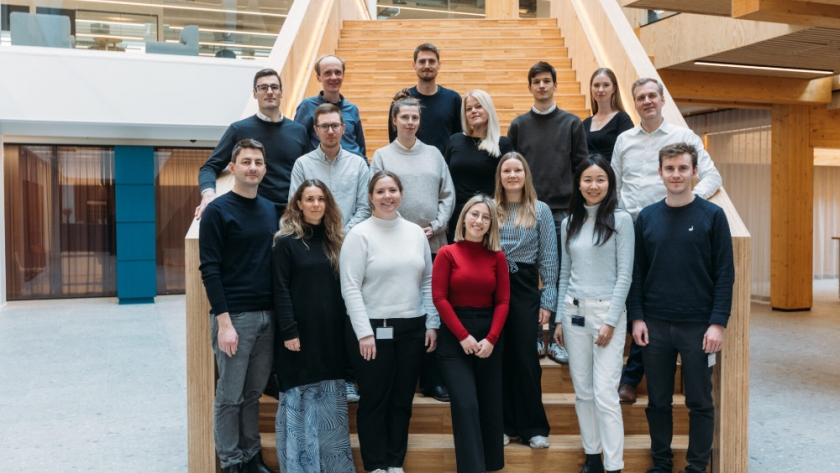
By Agroempresario.com
Enduro Genetics, a Danish startup focused on optimizing biomanufacturing through genetic reprogramming, has secured €12 million ($12.4 million) in a Series A funding round. The investment was led by Supernova Invest, NOON Ventures, and Sandwater, bringing the company’s total funding to €18 million ($18.7 million), including grants from the BioInnovation Institute and the European Innovation Council accelerator grant.
The fresh capital will support the expansion of Enduro’s technology platform and accelerate its commercialization efforts. “Enduro’s cell reprogramming technology is solving major challenges in the bioproduction space, and large organizations are already reaping the benefits,” noted Theis Malmborg, general partner at NOON Ventures. “We believe the team will have an outsized impact on the future of biomanufacturing.”
Enduro Genetics was spun out of the Technical University of Denmark by Dr. Peter Rugbjerg and Dr. Christian Munck. The company tackles a fundamental problem in biomanufacturing: declining production efficiency at scale. CEO Christian Munch explains that in bioreactors, only a fraction of cells actually produce the target substance, while others consume resources without contributing to yield.
“Sometimes, only 15-20% of cells are responsible for producing the desired product. Over 60-80 generations, the entire population may lose the ability to produce,” says Munch. This inefficiency arises because microbial cells have no natural evolutionary incentive to maintain production of genetically engineered substances like dairy proteins, vaccines, or human milk oligosaccharides.
Enduro Genetics has developed a novel genetic biosensor, known as Enduro Sense, that reprograms cells to prioritize production. The technology links the expression of essential survival genes to the production of the target substance. “Essential genes are upregulated when the cell produces the target and downregulated when it does not,” explains Munch. This ensures that only high-yielding cells thrive, preventing non-productive cells from consuming valuable feedstock.
By maintaining a high-producing cell population over extended periods, Enduro’s solution enhances process efficiency across multiple organisms, including bacteria, fungi, and yeast. “The larger the production burden on the organism, the more effective our technology becomes,” says Munch.
By improving bioreactor efficiency, Enduro Genetics enables companies to increase output without requiring additional bioreactor capacity. “We typically see a >30% improvement in titer and fermentation time increased five-fold, allowing extended fed-batch fermentation and continuous production,” explains Munch.
This translates to immediate cost savings, as clients can achieve greater yields using their existing resources. “Space, feedstock, and nutrients that would otherwise sustain non-producing cells are instead directed into generating the desired product,” he adds.
Implementing Enduro Sense into an existing production strain requires a one-time modification at the master cell bank level, with no changes to the media or production process. “We don’t introduce foreign DNA or interfere with production pathways,” clarifies Munch.
For implementation, Enduro provides two options:
Clients can send their strains to Enduro, where modifications are carried out in-house.
Clients can receive the necessary genetic constructs as a data file, allowing them to synthesize the DNA and implement changes independently with Enduro’s guidance.
The latter option ensures that intellectual property remains securely within the client’s facilities.
Over the past two years, Enduro has transitioned from working with smaller startups to collaborating with major players in biosolutions and pharmaceuticals. “We are now implementing our technology in commercial strains and processes with more than a handful of established clients,” says Munch. “We expect to deliver multiple commercial implementations by 2025.”
Enduro’s business model includes:
A technology access fee for using the biosensor in client strains.
The option for clients to integrate the genetic plug-in themselves or via Enduro’s fee-for-service model.
A milestone payment and royalty upon commercial production implementation.
With its latest funding round, Enduro Genetics is poised to drive a major transformation in biomanufacturing. By ensuring that only high-producing cells survive, its technology offers a cost-effective way to boost output and efficiency. As demand for sustainable bioproduction grows, Enduro’s approach could redefine the economics of industrial fermentation.
Munch remains optimistic about the future: “The ability to sustain bioproduction over longer time scales will open new opportunities across industries. We are just beginning to see the impact of what our technology can achieve.”
